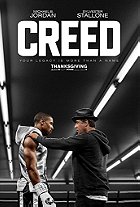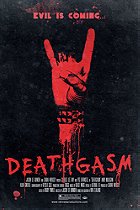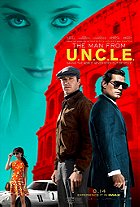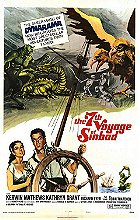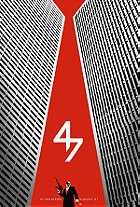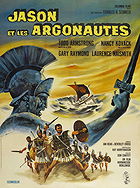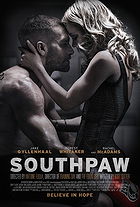A bona fide classic in the annals of television history, Columbo needs no introduction. Starring the late, great Peter Falk as the titular Italian homicide detective who's a lieutenant in the LAPD, it's a long-running formula crime show which has developed into a TV mainstay. (It happens to be Ricky Gervais's favourite show, as well.) If you tune into free-to-air television or cable right now, it's all but guaranteed that there will be an episode of Columbo being screened. And even more prestigious is the fact that the final episode aired over three decades after the show's commencement, with Falk having played the character for thirty-five years. If you are not familiar with Columbo - and if that is the case, why the hell not? - then there's no time like the present to become acquainted with this effortlessly charming, quintessential television staple.
The brainchild of Richard Levinson and William Link, who worked on several shows together, Columbo actually started out as a television movie called "Prescription: Murder" in 1968, which itself was a filmed version of a Broadway play. "Prescription: Murder" set the stage for what was to come by establishing the unique formula, and was followed up by a second pilot ("Ransom for a Dead Man") before Columbo began airing in full seasons as a TV show on NBC. With less than ten episodes a season, Levinson and Link had the time to focus on quality over quantity, with each episode being treated as a movie, overseen by a rotating roster of directors and writers. Columbo ran for seven consecutive seasons on NBC before laying dormant for over a decade, eventually being revived for a few additional seasons and the occasional special on ABC from 1989 until the final episode in 2003.
Whereas most murder mystery shows like Law & Order and CSI run for forty-five minutes per episode and are predominantly whodunits, Columbo is a different beast. Each episode is rather beefy, running between seventy and ninety-five minutes, essentially a feature-length film, and the "hook" is that we see the murder taking place and we know who the killer is; the fun is watching to find out how Columbo will nail the perpetrator. Each antagonist firmly believes they have staged the perfect murder, and put on an act around the police (some are better than others in this aspect), but there's always something that the beloved Lieutenant manages to sniff out. Naturally, not every episode is entirely successful in this respect, and in a number of cases, the major piece of evidence would likely be too slight to secure a conviction in real-life. In other episodes, Columbo concocts elaborate traps to coax confessions, but such situations do not always sit right. Still, the appeal of the show is watching the detective work, realism be damned. Admirably, Columbo is not afraid to shake up aspects of the formula - some episodes do have unexpected surprises, particularly the Season 5 episode "Forgotten Lady."
Lavish budgets were never at the show's disposal, and as a result, Columbo is small-scale - it's driven by dialogue set in low-key locales, with no action or anything pulse-pounding beyond the thrill of the procedural. Visually, the show is very basic, with minimal special effects and an almost workmanlike presentation, especially in the earlier seasons. Later seasons, though, are treated a bit more like theatrical features, exhibiting additional panache. The final episode, "Columbo Likes the Nightlife," is quite slick, with modernised, flashy visuals and techno music to bring the show into the 21st Century without losing sight of what made it so appealing. But that was to be the first and only contemporary Columbo, for better or for worse. Due to the show's style, it's hard to judge what any individual's reaction to the series may be in 2016. Some may find the telemovies leaden, boring or slow-paced, while others may have trouble accepting the unique way that Columbo operates. It certainly took me a few episodes to get in-tune with the show, but once I got there, it was well worth it.
On top of the show's format being unconventional, Falk's enormously enjoyable title character is unconventional to the extreme. Columbo is a policeman who favours unusual methods of solving each mystery, and he's not the typical television cop. Indeed, rather than a dashing man of action, Columbo is a scruffy detective, always looking tatty and smoking a cigar. Columbo likes to lull suspects into thinking that he's dumb (his appearance is merely a front), when in fact he's always one step ahead of them. He's very intelligent, picking up little things that others miss, often able to poke holes in the official line after five minutes at the crime scene, and it's great fun to watch him drive suspects up the wall by hanging around them so much. A lot of the pleasure derives from Columbo's interactions with the perpetrators - there's almost always a moment when he drives the murderer to full-on hate him, and that particular moment is always gold. He also struggles to get along with other members of the general public; a housekeeper in the Season 2 episode "Double Shock" cannot stand the detective or his dishevelled demeanour, and their exchanges are a common source of amusement. Humour is omnipresent in a number of telemovies, which is a huge part of the show's appeal. Columbo even has a dog that appears intermittently, leading to many amusing and adorable moments.
Also unique about Columbo is that some episodes take place in different cultures and even countries, with the Lieutenant solving murders in England and Mexico. The terrific Season 4 episode "By Dawn's Early Light" is set at a military academy, and it's priceless to see Columbo mingling with disciplined army personnel. A few episodes revolve around magicians, too, and Columbo is frequently coming into contact with actors and other celebrities. Another classic episode is the Season 7 telemovie "Murder Under Glass," which sees Columbo befriending a whole network of Italians, including chefs who cannot stop feeding the detective anything that he wishes. It's pure dynamite watching Columbo interact with other persons of his nationality who hold him in high regard.
It's hard to imagine anybody other than Falk as Columbo (Mark Ruffalo would be a good choice for any contemporary reboot, mind you). Put quite simply, Falk plays the role to perfection, emanating limitless charm, and he makes Columbo seem like a real person. It takes a few episodes for Falk to get his Columbo act down-pat ("Prescription: Murder" actually shows a more civilised Columbo), but once he settles into his groove, he's a joy to watch. He's one of the all-time great TV detectives. Another enjoyable aspect of the character is his wife. Never seen on-screen, but mentioned in most episodes, Mrs. Columbo is one of the best unseen television characters in history. Whenever Columbo works a case involving an actor or someone high-profile, he immediately tells the individual that his wife is their biggest fan. NBC actually commissioned a series called Mrs. Columbo in 1979, but it never caught on. Most problematic was the fact that the title role was played by Kate Mulgrew, who was only twenty-four years old when the show first aired, far too young to be a believable companion for the aging Falk. Eventually, Mulgrew's role was renamed from Kate Columbo to Kate Callaghan, with all Columbo references being dropped.
There are other fun little touches to the title character which bear pointing out - for instance, his first name is never "officially" revealed, with the creators insisting it's simply "Lieutenant," a gag that is actually used in a couple of episodes. (Some accept the theory that his name is Frank, but this has been denied by the producers.) And who else finds it odd that Columbo remains a lieutenant for over three decades, without ever receiving a promotion?
Perhaps the most notable aspect of Columbo is the host of distinguished directors responsible for its creation, and the guest stars who appear. The first episode of Season 1, "Murder by the Book," was helmed by none other than Mr. Steven Spielberg, with the telemovie airing mere months before Duel was released in 1971. Falk himself even tried his hand at directing the superb Season 1 episode "Blueprint for Murder," while other filmmakers like Jeannot Szwarc (Jaws 2), James Frawley (The Muppet Movie) and Jonathan Demme (Silence of the Lambs) have all made their mark. The roster of guest stars is equally impressive - the list includes Leslie Nielsen, John Cassavetes, Honor Blackman, Martin Landau, Martin Sheen, Vincent Price, Janet Leigh, Vera Miles, Johnny Cash, Dick Van Dyke, Roddy McDowall, William Shatner, and Mr. Spock himself, Leonard Nimoy. Some actors appear more than once; Patrick McGoohan and Robert Culp play four different characters each. (Falk's actress-wife Shera Danese appears in six episodes, too.) Admirably, not all of the murderers are depicted as outright evil, with Columbo displaying sympathy towards some of the criminals that he's compelled to arrest. Columbo is extremely good at his job, but sometimes he almost feels bad slotting the last piece of evidence into place. It's this type of dynamic which elevates Columbo above the ordinary, along with the fact that some of the murderers are thoroughly charismatic. However, in other telemovies, it's incredibly satisfying to see the more arrogant killers getting their just desserts.
As to be expected from a long-running show, not all of the sixty-nine episodes are home runs. There are some real duds - the experimental "Last Salute to the Commodore" from Season 5 is a genuine chore to sit through, with shonky dialogue, skewwhiff pacing, and performances that are stilted, awkward and unsure. By a similar token, "Identity Crisis" (also from Season 5) is a bit too convoluted to be fun, "Undercover" is almost unwatchable, and it's hard to defend the below-par "No Time to Die," which doesn't even involve a murder and contains very little of what we love about the show! Most Columbo fans seem to concur that the greatest episodes are those from the original seven-season run on NBC, but the ABC years did lead to some standout telemovies; "Murder, Smoke and Shadows" from Season 8 is especially brilliant, with its Universal Studios setting and a spot-on, highly-charismatic Fisher Stevens as the killer. However, the majority the revival episodes are simply middle-of-the-road, lacking that spark of classic Columbo charm. It must also be said that Columbo doesn't do much in the way of detective work in the show's final years, leading to a few underwhelming endings ("Murder with Too Many Notes" squanders Billy Connolly's appearance with a dud finale), but the aforementioned "Columbo Likes the Nightlife" is thankfully grittier, observing the Lieutenant working hard to get his man.
In an age of high-tech detective programs, it's nice to kick back and observe a much simpler time, when the smallest piece of seemingly inconsequential evidence can nail a suspect. Columbo is easy to watch, and even provides an intriguing journey through time, with the fashions, technology, and general household décor differing from decade to decade, though our favourite Lieutenant's clothing never changes - he always wears that rumpled raincoat. (Also, who remembers being able to openly smoke inside houses, restaurants and other establishments?) Although some may find it unsatisfying that Columbo never received a more definitive finale to send him off, perhaps it's more fitting that the final episode simply ends like all the others, with Columbo departing the scene after placing a suspect in handcuffs. In this way, he can live on in our imaginations. Furthermore, even though this show is named for the legendary character, it's never actually about Columbo - his personal life is irrelevant. Sixty-nine telemovies may seem excessive, but in my opinion, it's not enough. Columbo is extraordinary television, and its accolades and awards across the years speak for themselves.
8.5/10
 Login
Login
 Home
Home 183 Lists
183 Lists 1668 Reviews
1668 Reviews Collections
Collections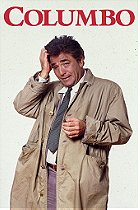





 2 comments,
2 comments, 


